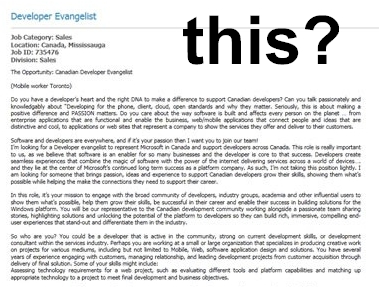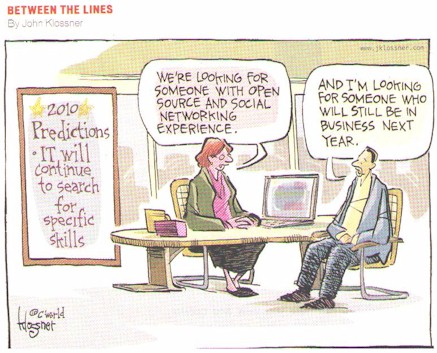In the November 2, 2010 Ask The Headhunter Newsletter, a manager makes a complaint and a request. Listen up:
I am speaking both as a frustrated hiring manager and as a job hunter. When I was job hunting, I always made it clear that I wanted the job. I expressed this verbally during the interview and in my thank-you letter. Now, as a (beginner) hiring manager, I want to ensure that positions are filled by qualified candidates who I know, undisputedly, want the job.
Can you discuss the importance of this basic and obvious technique in interviewing that is often overlooked? That is, the applicant must always say to the potential employer, “I want this job.” Of course, this must be based on a sincere desire for the position. What are your views on the importance of this statement?
A truncated version of my advice:
(For the entire column, you need to subscribe to the free weekly newsletter. Don’t miss another edition!)
There’s a footnote in one of my books about a sales vice president who interviewed for a job and failed to get the offer. He argued to me that making such an explicit statement is awkward and that it shows the candidate “has no class.”
My response to him: Failure to say you want the job indicates you aren’t worth hiring because you don’t have enough interest in working for the employer.
“Of course I want the job,” he exclaimed. ” That’s why I’m interviewing! The manager knows that!”
No, the manager doesn’t know that. Most jobs people interview for are jobs that come along, not jobs they really want. Most candidates don’t know they want a job until after they’ve met and talked with the manager at length. When the candidate makes a decision, the manager needs to hear it.
When you interview for a job and decide you want it, do you say it? “I want this job.” No, I don’t mean do you hem and haw and mince your words. I mean, do you say, “I want this job?”
I think if you don’t, you don’t deserve to be hired. (Would you expect someone to accept your marriage proposal if you don’t say, “I love you?”) If you’re a manager, I suggest you watch your next candidate, and listen carefully. Does she tell you she wants to work on your team? No? Hit the EJECT button. On to the next candidate!
.

 ted… Joey deVilla over at Microsoft Canada has a good idea.
ted… Joey deVilla over at Microsoft Canada has a good idea. And that’s the point. deVilla is telling you up front what this gig is really like. Yah, he makes it look great — there’s definitely some selling going on here. But lordy, there’s no selling at all going on in that other document. If deVilla’s posting makes it look like working with his team is a party, that HR word pile up above makes it look like life in a straitjacket!
And that’s the point. deVilla is telling you up front what this gig is really like. Yah, he makes it look great — there’s definitely some selling going on here. But lordy, there’s no selling at all going on in that other document. If deVilla’s posting makes it look like working with his team is a party, that HR word pile up above makes it look like life in a straitjacket!